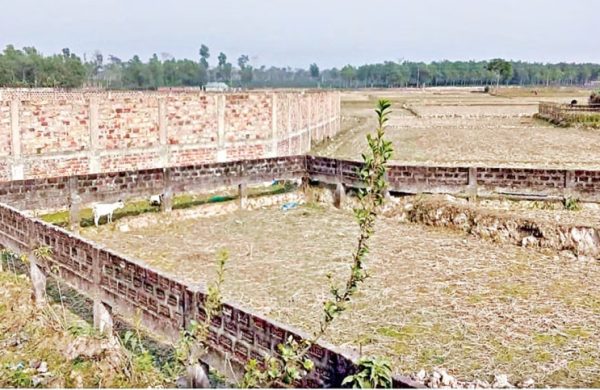Food safety concerns mount as Bangladesh’s eatery industry expands unchecked
- Update Time : Tuesday, February 18, 2025

Staff Correspondent:
Despite the rapid expansion of Bangladesh’s food service industry, encompassing hotels, restaurants and roadside tea stalls, concerns over food safety remain largely unaddressed, contributing to serious public health risks.
A recent survey by the Bangladesh Bureau of Statistics (BBS) reveals that the number of food establishments across the country has almost doubled in a decade, reaching 436,274 in 2021.
This sector now employs approximately 2.1 million workers. But the lack of proper regulation and food safety measures means that a significant portion of the population continues to consume unhygienic food daily.
During visits to various roadside eateries in areas such as Motijheel, Shahbagh, and Paltan, correspondent found that many people opt for these establishments due to their affordability.
Sellers said that despite offering meals at low prices, they manage to make a profit as their operating costs are lower than those of conventional restaurants.
When asked about hygiene standards, sellers insisted that their food was fresh and prepared in their homes by family members or employees following proper practices. But public health experts warn that such informal assurances do not guarantee food safety.
RAPID GROWTH BUT LIMITED REGULATION
The BBS’s Hotel-Restaurant Survey 2021 highlights that of the total food service establishments, 344,687 are roadside tea stalls, with 159,393 in urban areas and the remainder in rural regions.
The country also has 67,991 fast-food shops, 19,637 restaurants and mobile food vendors, and 126 catering services.
Despite the sector’s rapid expansion, regulation remains inadequate. Outside Dhaka, only 65,000 establishments are registered with the Bangladesh Hotel Restaurant Owners Association, leaving a vast majority unmonitored.
Over the past three decades, the number of hotels and restaurants has steadily increased—from 117,981 in 1992-93 to 215,103 in 2002-03, 275,324 in 2009-10, and 436,274 in 2021.
While male employment in the sector has more than doubled to 1.97 million in 2021 from 850,000 a decade earlier, the number of female workers has also risen significantly to 100,737.
Of the total establishments, only 852 are government-owned, with the rest operating under private ownership.
The number of short-stay hotels is recorded at 2,889 in urban areas and 301 in rural regions.
HEALTH EXPERTS WARN OF UNSAFE FOOD PRACTICES
Professor Khaleda Islam of the Institute of Food and Nutrition emphasised that proper hygiene must be maintained in food preparation to ensure safety.
“Food must be stored correctly, cooked thoroughly, and kept at the right temperature. Safe water must be used in all cooking processes,” she said.
She also advised consumers to carefully inspect food before purchasing. “When buying fruits and vegetables, check for natural colour and freshness. Avoid rotten or foul-smelling produce. In the case of cooking oil, assess the fat content to ensure quality,” she added.
The Bangladesh Food Safety Authority Chairman, Zakaria, highlighted the severe consequences of consuming unsafe food. “According to the World Health Organisation, 80 people die from diarrhoea every day in Bangladesh, with an annual toll of 30,000 deaths. One of the major causes is the consumption of unsafe food,” he said.
MEAT SOLD WITHOUT FITNESS CERTIFICATES
Another major concern is the sale of meat without proper health certification. Existing laws, including the Animal Slaughter and Meat Quality Control Act 2011, require veterinary surgeons to inspect animals before and after slaughter, ensuring their meat is safe for consumption.
However, this provision is largely ignored due to the lack of veterinary professionals and monitoring.
Dhaka’s two city corporations are responsible for ensuring hygienic meat sales, but their enforcement remains weak. Of the five designated slaughterhouses, two have been closed for years, and the remaining three are inadequately monitored. Traders blame the authorities for failing to regulate the sector, while city officials acknowledge a shortage of veterinary inspectors.
The Bangladesh Veterinary Association underscores the importance of thorough meat inspection.
“Animals must be tested 24 hours before slaughter in an antemortem examination, and their meat must be examined after slaughter in a postmortem examination. This helps detect infections in organs like the liver and lungs, which can pose significant health risks if consumed,” a spokesperson explained.
LACK OF OVERSIGHT PUTS CONSUMERS AT RISK
Despite regulations under the Safe Food Act, which prohibits selling meat from diseased animals and prescribes penalties of up to three years’ imprisonment or a fine of Tk 12 lakh for repeated violations, enforcement remains weak. Sellers claim they can visually assess an animal’s health before slaughter, but experts warn that diseases may not always be detectable without proper examination.
Between January and December 2024, a total of 89,742 cows, goats, and buffaloes were slaughtered at the Dhaka North City Corporation’s slaughterhouse. The Dhaka South City Corporation reports that between 120 and 135 cows, seven buffaloes, and 780 to 800 goats, khasi, and sheep are slaughtered daily. But the shortage of veterinary professionals further exacerbates concerns.
While DSCC is supposed to have 10 veterinary doctors and 20 inspectors, it currently has only six. The DNCC, meanwhile, has no veterinary surgeon and only one inspector.
With unsafe food practices persisting across Bangladesh’s food industry, experts stress the urgent need for stricter enforcement of regulations and improved public awareness to protect consumers from preventable health risks.


















